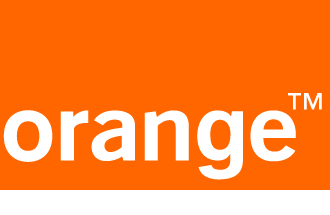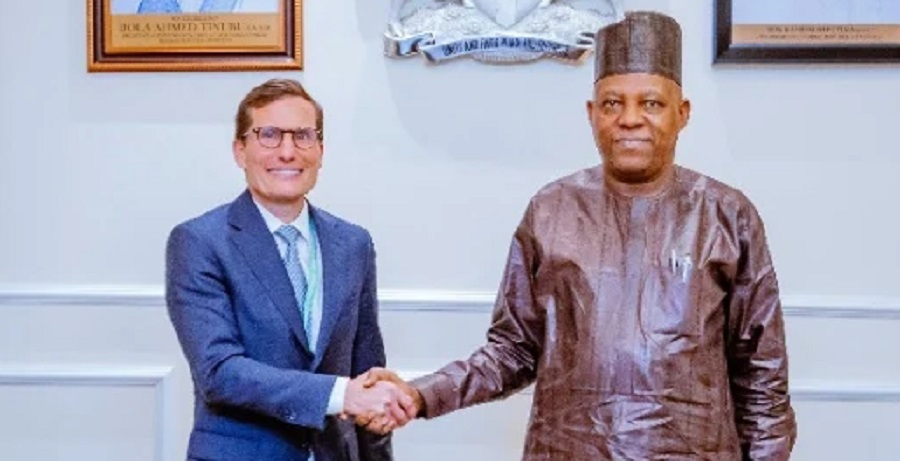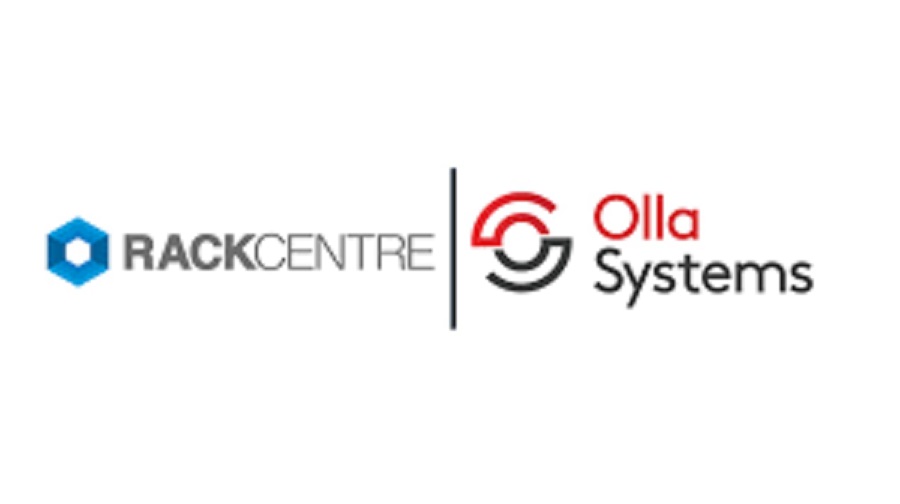E-Business
Orange launches Phone which Democratises Access to Internet in Africa

Orange partners with KaiOS Technologies and UNISOC to launch a phone with voice recognition at $US 20 in 16 countries in Africa and the Middle-East : Botswana, Burkina Faso, Cameroon, Central Africa Republic, Democratic Republic of Congo, Côte d’Ivoire, Egypt, Guinea Bissau, Guinea Conakry, Jordan, Liberia, Madagascar, Mali, Morocco, Sierra Leone and Tunisia.
Beginning April 2019, Orange customers in Mali, Burkina Faso and Côte d’Ivoire will have access to a new category of smart feature phones powered by KaiOS, the operating system from KaiOS Technologies. The other countries will follow in the year.
Sanza will be commercialised with a dedicated offer (voice/text/data) starting around $US 20 (depending of the country), that will help customers to optimise their budget.
Sanza has the simplicity of a feature phone powered by the UNISOC SC7731EF chipset platform with a long-lasting battery life up to 5 days, 3G+, Torch, Wi-Fi and Bluetooth, combined with advanced smartphone-like functionalities.
Advanced functionalities for Africans
Thanks to the Google Assistant, Sanza will help overcome language and literacy challenges, as our customers can access information and applications on the device easily, just with their voice, and without having to type.
The Google Assistant understands multiple French and English accents, with more languages to come later this year. The phone menu is available in Arabic, Swahili, Portuguese, English and French.
This new phone will also give access to applications such as Twitter, Facebook, YouTube, Google Search and Google Maps, as well as Orange Money, the flagship mobile-based money transfer and financial services offer and My Orange, the application to monitor your mobile consumption, among other things.
For Alioune Ndiaye, CEO of Orange Middle East and Africa:”Sanza is a concrete proof of the capacity of Orange to be a key player of digital inclusion in Africa and the Middle-East. With its access to internet with the voice and its attractive price around US $20, I have the conviction that this 3G phone and soon 4G, is a powerful lever to develop the access to internet for all in Africa”.
For Gérard Lokossou, CEO of Orange Democratic Republic of Congo: “The Smartphone penetration rate in DRC is quite low, 30 per cent versus the average of 50 per cent for the Continent.
The established mobile payment services via Orange Money, the launch of 4G+ in 2018 and our engagement to extend 3G coverage to the whole country are all contributing to boost the smartphone penetration rate in DRC.
“The next commercialisation of the Sanza phone at an affordable price demonstrates our strategy for the democratisation of Internet access in the country.”
Sebastien Codeville, CEO of KaiOS Technologies, said: “Our mission is to help close the digital divide by bringing mobile connectivity to the billions of people without internet in emerging markets, as well as providing those in established markets with an alternative to smartphones.
The Sanza by Orange marks an important milestone in fulfilling this mission, as its bound to be successful in Africa with its attractive price point, great features, and the strong presence of Orange in the region.”
Orange is present in 20 countries in Africa and the Middle-East and has 120 million customers. With five billion euros of revenues in 2017, this zone is a strategic priority for the Group.
Orange Money, its flagship mobile-based money transfer and financial services offer is available in 17 countries and has 40 million customers. Orange, a multi-services operator and key partner of the digital transformation provides its expertise to support the development of new digital services in Africa and the Middle-East.
E-Business
Visa to Establish Data Centre in Nigeria to ‘Boost Digital Economy’

Visa, global payment services giant, has announced plans to establish a data centre infrastructure in Nigeria.

Andrew Torre, Visa’s regional president for central and eastern Europe and Vice-President Kashim Shettima
According to a statement by Stanley Nkwocha, senior special assistant to the president on media and communications (office of the vice-president) on Friday, Andrew Torre, Visa’s regional president for central and eastern Europe, the Middle East, and Africa, spoke during a courtesy visit to Vice-President Kashim Shettima at the presidential villa in Abuja.
“This is in addition to its investments of over $1 billion in the country, including a substantial technological partnership with @moniepoint to foster digital payment solutions, a $200 million investment in Interswitch, and a partnership with @thriveagric to empower smallholder farmers and enhance food security in Nigeria,” the statement reads.
During the meeting, Torre said the plan to establish the data centre infrastructure aims to bring new technologies into the Nigerian market that would bolster the nation’s growing digital economy.
“Visa has been making investments and will continue to make these investments in Nigeria,” he said.
Responding, Shettima welcomed Visa’s expansion efforts, assuring the delegation that the partnership between Visa and the Nigerian government would continue to flourish.
The vice-president commended the company for investing in ThriveAgric, noting that President Bola Tinubu’s administration is deeply committed to repositioning the agriculture sector, which remains a top priority in its 8-point agenda.
“Nigeria is where the action is. Of the 10 fintechs in Africa, about eight are in Nigeria, with moniepoint as the newest addition,” Shettima said.
“Agriculture is key to the 8-point agenda of the present administration. President @officialABAT is really keen on repositioning the agriculture industry here, and we have to invest in technology, we have to invest in modernisation.”
On January 23, Moniepoint, a Nigerian fintech company, announced it secured investment from Visa to support the growth of small and medium enterprises (SMEs).
Andrew Torre, Visa’s regional president for central and eastern Europe and Vice-President Kashim Shettima
E-Business
FCTA Approves N242.8m for Microsoft 365 Licence to Digitise FCT-IRS

Federal Capital Territory Administration (FCTA) has approved N242.8m for the procurement of a Microsoft 365 licence for its Internal Revenue Service (FCT-IRS) as part of efforts to digitise the service’s operations.

Mr Michael Ango, acting executive chairman of FCT-IRS, disclosed this after the FCT Executive Committee meeting chaired by Mr Nyesom Wike, the minister of FCTA, in Abuja on Wednesday.
Ango said that the FCTA was making significant investments in technology to enhance revenue generation and collection.
“So, this is also one of those investments in technology that the FCT is undertaking.
“The licence, if procured, will enhance our ability to move most of our manual processes into automated processes.
“It will enhance our ability to communicate within our offices,” he said.
The executive chairman added that the move would also reduce the use of paper and ensure better record-keeping through the storage of information and documents in the cloud.
According to him, “The licence will essentially enhance our operations and assist us in generating revenue for the development of the FCT under Wike’s leadership.”
E-Business
Rack Centre Hosts Olla Systems’ Private Cloud Infrastructure

Rack Centre, West Africa’s Tier III Carrier and Cloud neutral data centre, has welcomed Olla Cloud Service, a new private cloud service by Olla Systems Limited, a leading provider of innovative technology solutions, to its facility.

Hosting at Rack Centre, Olla Cloud Service runs on a state-of-the-art, cloud-enabled infrastructure for enterprise applications across diverse platforms, including mission critical application, web applications as well as containerised applications using Kubernetes.
Lars Johannisson, CEO, Rack Centre, welcoming Olla Systems, noted that the partnership with Olla Systems Limited would reflect the company’s commitment to providing African businesses with high- quality cloud computing services.
He noted that Olla Systems would enjoy Rack Centre’s 13.5MW data centre campus facility, designed to meet the highest international standards and offering scalable solutions to Hyperscalers, Enterprises, and Cloud service providers.
As part of its commitment to sustainability, the facility is equipped with energy-efficient systems, advanced cooling technologies to mitigate environmental impact and an optimally-designed feature to handle high-density workloads with precision.
According to Johannisson, “With Olla Cloud Service hosting at Rack Centre, clients will experience fast performance and low latency, enabling businesses in Africa to access world-class cloud computing services within a secure and compliant local infrastructure.”
Also speaking, Olusola Adenuga, chief executive officer, Olla Systems Limited, expressed enthusiasm about hosting at Rack Centre, noting that Olla Cloud remains a groundbreaking private cloud solution for businesses.
While highlighting the benefits of the partnership between Rack Centre and Olla Systems, Adenuga disclosed that “subscribing to Olla Cloud Service is cost-effective to customers because of its local currency payment advantage.”
She also noted that the partnership between the duo, provides businesses the opportunity to meet regulatory requirements of data residency, while enjoying world-class infrastructure as a service (IaaS) locally.
“Other benefits of hosting with Olla Cloud include: 24/7 support, unparalleled performance, scalability and agility.” she added.

 E-Financial3 days ago
E-Financial3 days agoUBA Launches Afrigo Card to Revolutionise Domestic Payments

 E-Financial2 days ago
E-Financial2 days agoFIRS Partners Flutterwave for Digital Payment Collection

 Broadcasting2 days ago
Broadcasting2 days agoPublic Outrage, Legal Threats as Abuja Council Demands N500, 000 as TV Levy

 E-Financial3 days ago
E-Financial3 days agoCourt Slams Zenith Bank with N30m Damages over Fraudulent Debits in Customer’s Account

 Telecom2 days ago
Telecom2 days agoNigeria Charts New Course to Bridge Gender Digital Divide at UN’s CSW69

 E-Business3 days ago
E-Business3 days agoFCTA Approves N242.8m for Microsoft 365 Licence to Digitise FCT-IRS

 General News2 days ago
General News2 days agoNIN Enrolment Hits 117.3m – NIMC

 E-Financial2 days ago
E-Financial2 days agoZuriel Oduwole, Sterling One Foundation, and Sanwo-Olu Champion Gender Equality and Youth Empowerment


























